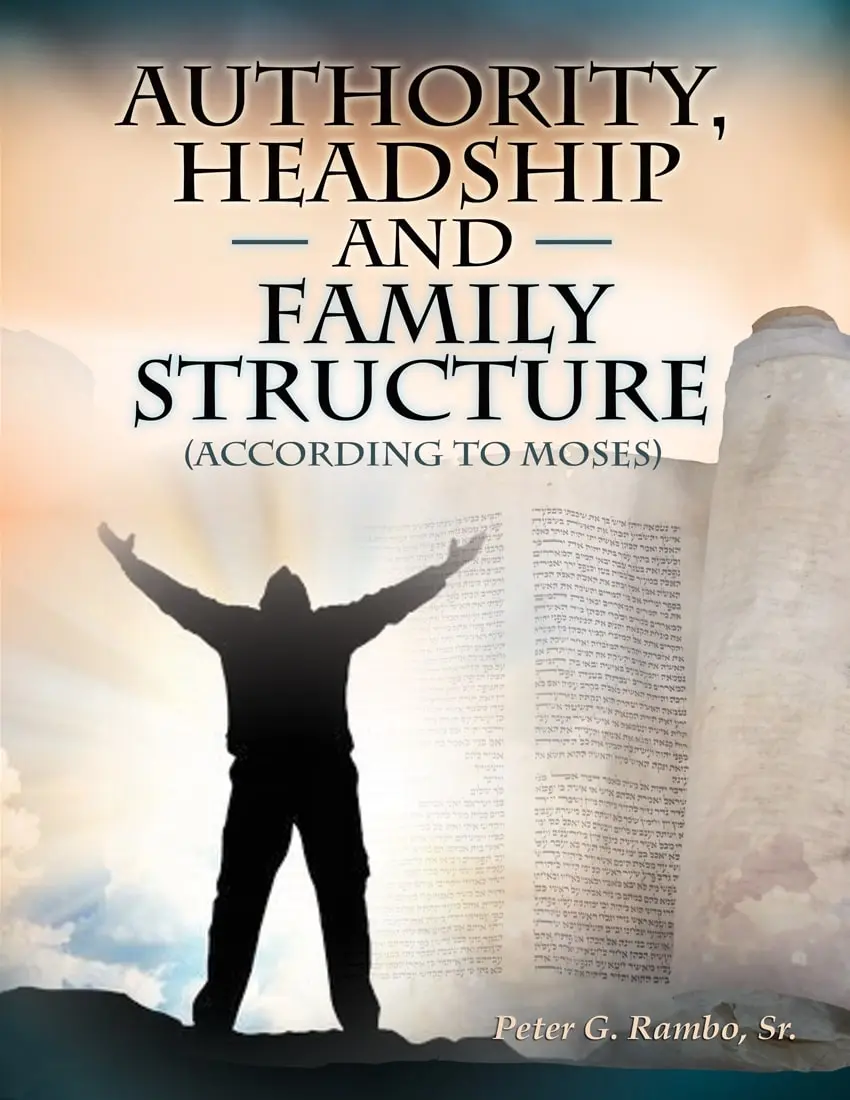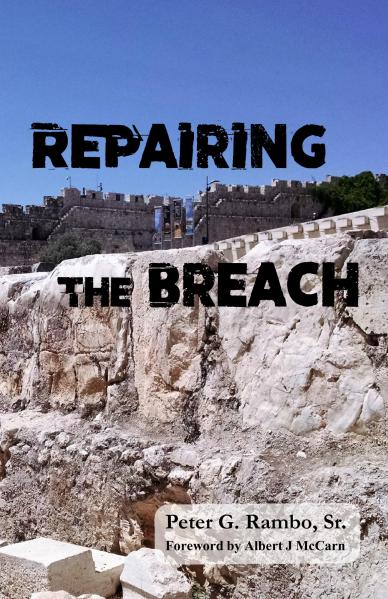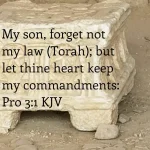
Lately, I have been pondering the whole ‘Adam and Eve’ incident in Gan Eden and it has led me to wonder, ‘Does fencing a commandment actually open the door for the adversary’s assault?’ I would be interested in the thoughts of my readers, but first let me share some basics and why I think this is an important consideration.
The Torah of Moses clearly says,
“Whatever I command you, you shall be careful to do; you shall not add to nor take away from it.”
Deut. 12:32
On the surface, the very act of fencing, adding an additional layer to the commandment – presumably to protect the command from being broken, is sin because it is adding to the commandment. My question, however, is whether the act of fencing actually opens the door for the enemy by creating a standard that is not Yah’s standard and therefore one He does not need to provide protection from?
In Gan Eden,
16 The Lord God commanded the man, saying, “From any tree of the garden you may eat freely; 17 but from the tree of the knowledge of good and evil you shall not eat, for in the day that you eat from it you will surely die.”
Genesis 2:16-17
In the next chapter we see an exchange where the adversary asks a twisted question and Eve gives an incorrect response opening the door for the adversary to debate/discuss the topic.
3 Now the serpent was more crafty than any beast of the field which the Lord God had made. And he said to the woman, “Indeed, has God said, ‘You shall not eat from any tree of the garden’?” 2 The woman said to the serpent, “From the fruit of the trees of the garden we may eat; 3 but from the fruit of the tree which is in the middle of the garden, God has said, ‘You shall not eat from it or touch it, or you will die.’” 4 The serpent said to the woman, “You surely will not die! 5 For God knows that in the day you eat from it your eyes will be opened, and you will be like God, knowing good and evil.”
Genesis 3:1-5
The wily one, slewfoot, asks if God had said that they could not eat from ANY tree. Eve, who should have deferred immediately to her head, Adam, instead answers with, “… you shall not TOUCH it…”
Our immediate question should be, ‘Where did she get that idea?” Did Adam fence the command and teach it to her, or did she add that little tidbit? And, by adding ‘do not touch,’ did that immediately give the adversary an opening?
Yeshua, after forty days in the wilderness, is approached by hasatan. (See Matthew 4 and Luke 4) Three times the devil tempts Him and in each case He responds with a direct quote from the Torah. He does not add to or take away from the Word. From His example and the resulting outcome compared to the Gan Eden incident, is it reasonable to assume that adding to the command actually gives the enemy a foothold?
A side question would be, ‘does God protect us from the enemy when we are upholding a manmade rule that is not written in His Word?’ E.g., No dancing or no alcohol or do not look at a woman.
Paul tells us,
…I would not have come to know sin except through the Torah; for I would not have known about coveting if the Torah had not said, “You shall not covet.” 8 But sin, taking opportunity through the commandment, produced in me coveting of every kind; for apart from the Torah sin is dead.
Romans 7:7b-8
In this example, Paul clearly tells us that the commandment literally produced the desire to cross the line. Therefore, I think it safe to assume that a manmade rule would produce even more desire.
Applied to Eve, did the ‘fence,’ whether created by her or Adam, cause her to desire to ‘touch’ the fruit and then she had no defense from the Word when the adversary said (in a very snarky tone), ‘Huh! you will not surely die (if you touch it)….’
My gut tells me that by altering the commandment, whether it was she or Adam who did so, they were made vulnerable to temptation for which they had no defense.
If this is true, then how serious a matter is it to fence commands instead of taking them exactly as the Father has given them and adhering to their simplicity?
What are your thoughts? Please discuss.



















































































































Hey Pete, this is Bob Wern down in Summerville, SC. Not a big fan of anonymity.
OK, interesting thought, lets think of a few things. Fences or hedges have a very non-threatening means of protection. Example, Torah has a consequence for someone’s Ox falling into a hole you dug or falling off of the roof of your house. It does not say to build a fence or hedge to stop that from happening yet does have a consequence if that happens. So,, I come up with a nice idea to protect that boundary and keep those things from happening. Some friends see it and say “hey great idea” and do the same. Not saying “hey you have to build fences or you’re not honoring the instruction (law), but just it does work. I don’t think that would show an Adversary influence to following the instruction. Yes,I know that is a simplified example yet it might show where the Father might want to see how we respond to His instructions. A primary thought might be, I have an idea to share with the community about protection, but each has their own choice to use that idea or not, the bottomline we are all still liable for the consequence. How we share an idea, as in Adam to Eve, we might just want to be clearer, as in “here is what I understand the Father is saying, and here is how I am keeping myself in a safe place.” I don’t see an Adversary influence here, but if we let our protections or ideas become the primary focus then that thought of “does it really say that” creep in… I hope that made sense and just some points to ponder.
LikeLiked by 2 people
Thank you. Yes, makes sense and a point to ponder.
LikeLike
Pete wrote:
“On the surface, the very act of fencing, adding an additional layer to the commandment…, is sin”
One question I have is: What constitutes adding to Torah?
Instructions were given to Moses at Sinai.
Then Moses sought and gave more instructions.
Then Ezekiel gave instructions.
Then Yeshua gave instructions.
Then Yeshua told his disciples to obey the Pharisees’ instructions.
Then Paul gave instructions.
A question when determining whether an illegal addition has been made to the instructions of YH-H might be: Was the source of the instructions an authority given by YH-H, and was he speaking what he heard from YH-H?
LikeLiked by 1 person
True, however, I question your citation of ‘Yeshua told his disciples to obey the Pharisees’ instructions.’ Do you mean Talmud, or do you mean when they read Moses?
LikeLiked by 2 people
Ok, so now we are starting to travel down a good path to discuss. So we have what maybe could be termed guidance on “what that looks like” with YH-H instructions (as in a fence as an example. So now for, always the first test, we have Deut 13. The next might be is the instruction counter to the “heart” of the instruction (hate vs murder)? Then third might be are you holding the “fence” higher than the instruction itself. I believe, from my understanding, is that Yeshua had issue with the aforementioned issue, tradition higher than the instruction. Not a bad thing to wash your hands but not above the instruction. Source, any source, starts with the first test, then moves forward. Am I missing any other tests or questions that can also be used to help us be safe as we follow YH-H’s ways? Oh and for discussion, again, to put everything mentioned/discussed/taught under Talmud under one grouping would be a huge disservice to those that spent their lives studying and sharing the Torah. Yes, the leadership (albeit suspect leadership) used the teachings of Sages as a “law”, but it might be an interesting discussion to see if the sages that wrote much of that material, when it was originally penned, did they expect it to be “law truth” and =/above Torah. Not so sure I think… another point to ponder…
LikeLiked by 2 people
Hi Pete, here’s my two cents. Let me start with this verse. Proverbs 7:1-2
1My son, keep my words
and treasure my commandments within you.
2Keep my commandments and live;
guard my teachings as the apple of your eye.
There are many verses that tell use to guard His words. What does guard mean, look like? I guard my marriage. For me that means I am not alone with a woman that isn’t a family member. People who know me, know that about me. Where the problem comes in, is when we claim the boundary we have set for ourselves to keep use from sin, is sin if it’s crossed, or hold others to that same standard. Is it okay for me to set a boundary for myself to safeguard my marriage? I certainly hope so. For an example of where I think there becomes a problem, let’s look at Judaism. I’m going to use one that I am very familiar with. Judaism teaches that it is sin to eat meat and milk together, I’m not looking for debate here, that’s not my point. If I ate cheese with my chicken sandwich it would be very frowned upon in many orthodox circles. Talking to a rabbi in Israel, I asked him specifics of the command. He told me that technically, if you KNEW you were eating chicken, you could indeed eat cheese with it. This being because a chicken does not produce milk, therefore it was not possible to boil a chick in it’s mother’s milk.
All that to say, I think it is s good thing to add hedges or fences to keep the commands of the Torah of Moshe. Just remember not to confuse the two. Shalom
LikeLiked by 1 person
I would add, if you know the Torah IS the boundary of a thousand foot cliff, do you want to stand with your toes on the edge?!? Not me, or my family, I’m going to put a fence a few feet back as a warning.
LikeLike
makes me think of this
Jeremiah 35:14 Jonadab son of Rechab ordered his descendants not to drink wine. His orders have been carried out. To this day his descendants have drunk no wine because they have obeyed what their ancestor commanded them. But I have spoken to you over and over again, but you have not obeyed me!
This whole story of this family and the honor the Father gives them for listening to their fathers is awesome! Note, their fore fathers went above and beyond the Torah, but Y–H bless it.
LikeLike
WB wrote:
“All that to say, I think it is a good thing to add hedges or fences to keep the commands of the Torah of Moshe. Just remember not to confuse the two. Shalom”
Yes, and I haven’t been given authority to add rules for those outside my family (or possibly community if I were old enough to be a gray-haired leader like our beloved blog host).
LikeLike
Hello Jason, so what is your take for what went on in Jeremiah chapter 35? Was it seen as evil by Y–H, or as righteous where a head of a clan made rules for his children ABOVE AND BEYOND the written Torah of Moshe?
LikeLike
Hi WB,
YH-H accepted these family rules, correct?
Jeremiah 35:18-19 NKJV
And Jeremiah said to the house of the Rechabites, “Thus says the LORD of hosts, the God of Israel: ‘Because you have obeyed the commandment of Jonadab your father, and kept all his precepts and done according to all that he commanded you, therefore thus says the LORD of hosts, the God of Israel: “Jonadab the son of Rechab shall not lack a man to stand before Me forever.” ’ ”
LikeLike
Hi Jason, I think I misunderstood your position, sorry. Pete, I am curious of your position on the original question you asked, do you think that adding fences causes temptation? Do you differentiate between fences given by a family head/father for his family and one given by someone to others not under the givers authority? I think Judaism, (not that I follow Judaism,I do not) would agree with me that there is a difference. This is why there are different rules for Sephardic and Ashkenazi Jews. For example, when a Sephardic woman marries an Ashkenazi man, she follows the sect of her husband. So the woman stops following the rules set out by her father that are specific for their sect and now follows the rules of her husband’s sect. I believe this is a biblical process. I’ve seen this and have discussed it with an Israeli religious man, so I know about this first hand. Shalom
LikeLike
Pete wrote:
“Do you mean Talmud, or do you mean when [the Pharisees] read Moses?”
With regard to the scope of the Pharisees’ influence, according to Yeshua in Matthew 23:3, it’s “πάντα οὖν ὅσα” (all therefore whatever). His golden rule in Matthew 7:12 actually has the same phrase: “Whatever” you would like others to do to you…
So, Yeshua’s criticism appears to be that the Pharisees had used legitimate authority (versus illegally adding to Torah) to bind heavy burdens on the people. He does not speak against the authority itself or relax the people’s obligation to these heavy burdens (minus a few Torah-compliant overrides, Himself being a higher authority than the Pharisees, for His own apostles like allowing them to pick grain on Shabbat and foregoing extra-Biblical hand washing according to tradition).
Bob wrote:
“Not a bad thing to wash your hands but not above the instruction.”
Indeed:
“Woe to you, scribes and Pharisees, hypocrites! For you pay tithe of mint and anise and cummin, and have neglected the weightier matters of the law: justice and mercy and faith. These you ought to have done, without leaving the others undone.”
Matthew 23:23 NKJV
Bob wrote:
“Oh and for discussion, again, to put everything mentioned/discussed/taught under Talmud under one grouping would be a huge disservice…”
Yes; Pharisees taught Torah, made rulings, and unfortunately bound heavy burdens. Yeshua saw fit to place people under their authority (and rebuked them).
Regarding those from the nations that came into the believing communities a little while after, it reminds me of the learning that would happen under that system. James said:
“For Moses has had throughout many generations **those who preach him** in every city, being read in the synagogues every Sabbath.” (emphasis added)
Acts 15:21 NKJV
LikeLike
Shalom Pete great blog.
I was reading the comments and wondering if the meaning behind Takanot, The seat of Moshe, is fully understood. Its a place of authority. The Pharisee sat on the seat of Moshe Judging if any have broken Torah, declaring His misphat, judgements given by the Father for breaking Torah. When they do this they are upholding His judgments and His. We are told to obey this authority. We are told not to do as they do. Use Takanot to add or subtract from the Word of God. To make judgements the Father did not give for transgressions the Father did not declare as transgressions. There is a rabbinical Tradition and belief passed down through the Talmud from the Pharisee. I can post the whole story that justifies the beleif if you all want but the short story is this. Yah is in Heaven and the Torah is on Earth. Because of this Not even Yah can change the rulings of the Rabbis.
A tradition is a tradition until there’s takanot made. Then it is a decree of rightousness given that supposedly the Father can not undo.
To many thoughts have been insured by traditions. To much of Torah is ignored because Takanot allows it to be.
LikeLiked by 2 people
Thanks, yeah… post away!
LikeLike
A couple of questions come to mind regarding the Moses’ Seat passage (Matt 23:1-3):
(1) Are we to do all that “he” (Moses; according to the 14th-century, Shem-Tov, Hebrew Gospel of Matthew) or “they” (Pharisees; according to the Greek manuscripts) say(s)? As much as I tend to think the original Matthew was Hebrew, the Shem-Tov reading seems non-linear, but who knows.
(2) When Yeshua commands us not to follow after the works of the Pharisees it does not appear that He is referring at that point to whatever they said or did but what they said and did not do. So, what was it that the Pharisees said [?from Moses’ Seat?] but did “not do”? Rather than understanding “do not follow their actions” [takkanot, ma’asim], could the end of Matt 23:3 instead be interpreted “do not follow their inactions”?
LikeLike
When Yeshua put a fence around the Torah it seemed to make perfect sense to me.
“ 27“You have heard that it was said, ‘YOU SHALL NOT COMMIT ADULTERY’; 28but I say to you that everyone who looks at a woman with lust for her has already committed adultery with her in his heart. ”
If you want to protect something, you place a fence around it.
Don’t commit adultery.
Fence: don’t even look at a woman with lust for her.
Don’t murder anyone.
Don’t have hatred in your heart for your brother because that too is murder.
I have a friend and mentor who describes it using very expensive horses that run in the derby. If you put only one fence around a horse worth millions and it breaks through and gets killed by a car or runs off a cliff, you’ve lost substantially but if you place another fence outside the first fence, you are protecting your horses.
Fences aren’t bad.
LikeLike
Pingback: God won’t help you defend your false doctrine!! | natsab